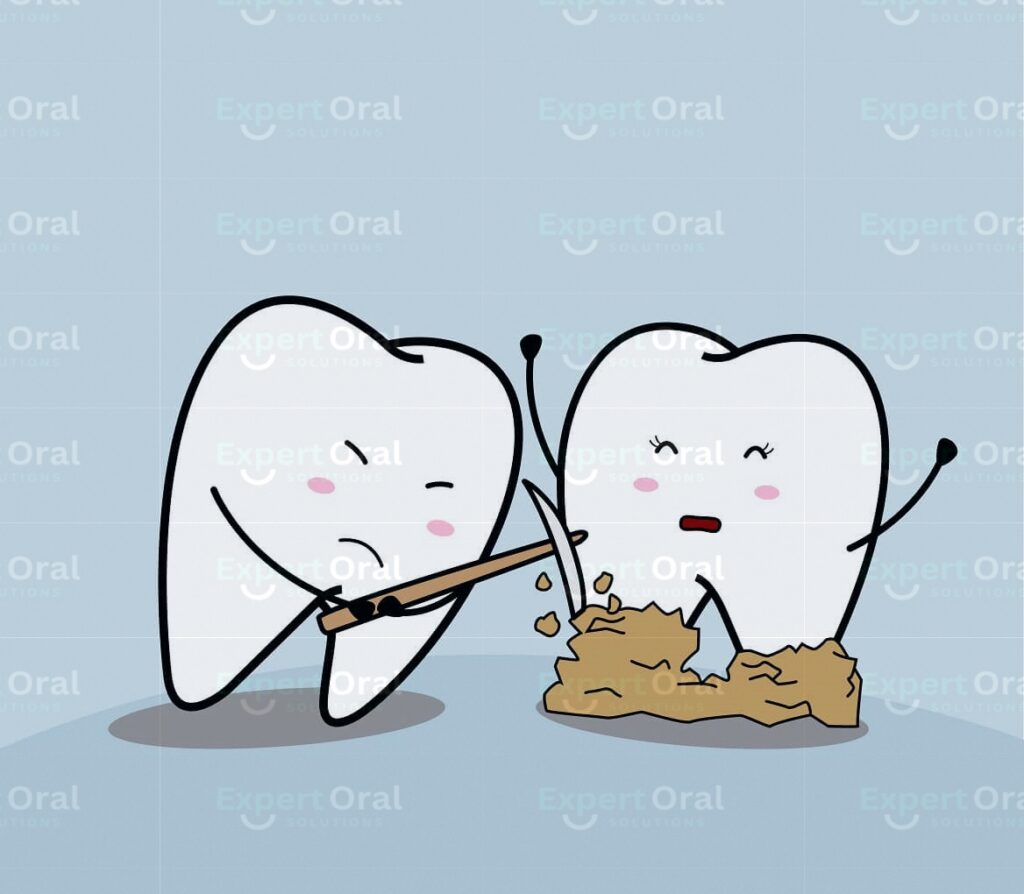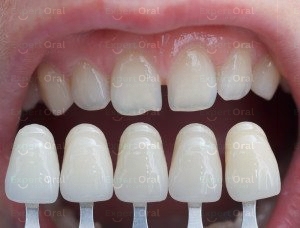A radiant smile can boost your confidence and leave a lasting impression. Teeth whitening has become a popular solution to achieve this, but navigating the associated costs can be confusing. This blog aims to shed light on the factors influencing teeth whitening expenses and offer valuable resources to help you estimate the cost for your specific situation.
Understanding the Cost Spectrum:
The price of teeth whitening can vary significantly depending on several key elements:
-
Type of Whitening Procedure:
-
In-office Whitening: Performed by a dentist, this method typically offers the most dramatic results and falls within the range of:
- $500 – $1,000 per session: This cost can fluctuate based on the dentist’s experience, location, and the specific whitening technique employed (e.g., laser whitening might be pricier than traditional methods).
-
At-home Whitening Kits: Available over-the-counter or through your dentist, these kits provide a more affordable alternative:
- $25 – $200: The price varies depending on the brand, the strength of the whitening agent, and the number of treatments included in the kit.
-
-
Additional Factors Affecting Cost:
- Number of Treatments: Achieving your desired level of whitening might require multiple sessions, increasing the overall expense.
- Dentist’s Expertise and Location: Experienced dentists situated in areas with a high cost of living generally charge more.
- Preliminary Procedures: Additional procedures like gum sculpting or root canals before whitening can add to the final cost.
Here’s a table summarizing the cost ranges for easier comparison:
| Procedure | Cost Range |
|---|---|
| In-office Whitening (per session) | $500 – $1,000 |
| At-home Whitening Kits | $25 – $200 |
Beyond the Initial Cost:
- Dental Insurance: Dental insurance rarely covers teeth whitening because it’s considered a cosmetic procedure, not medically necessary.
- Financing Options: Some dental practices offer financing plans to make in-office whitening more manageable financially.
Resources to Estimate Your Costs:
- American Dental Association (ADA) Find-a-Dentist tool: https://www.ada.org/ (Search for ADA-member dentists in your area)
- Contacting dental practices directly: Inquire about their teeth whitening procedures and associated costs.
- Online resources: Several dental websites and blogs offer cost calculators or general price ranges for teeth whitening procedures.
Remember:
- Prioritize oral health: Regular dental checkups and cleanings are crucial for maintaining good oral health. While a bright smile is desirable, prioritize the foundation of a healthy mouth.
- Transparency is key: During your consultation with a dentist, discuss the breakdown of anticipated costs, including potential additional fees like consultation charges or preliminary procedures.
- Explore alternatives: Depending on your budget and desired results, dental bonding or teeth whitening toothpaste might be suitable options. Consider consulting your dentist about these alternatives.
Financing options for teeth witening
While dental insurance rarely covers teeth whitening due to its cosmetic nature, several financing options can help make the procedure more affordable:
1. In-House Dental Financing:
- Many dental practices offer their own financing plans.
- Benefits: Convenient and often requires minimal paperwork. You can directly discuss terms and conditions with your dentist’s office.
- Drawbacks: Interest rates might be higher compared to other options.
2. Third-Party Financing Companies:
- Several healthcare financing companies specialize in medical and dental procedures. You can apply for a loan through these companies specifically for teeth whitening.
- Benefits: Potentially lower interest rates compared to in-house plans. Flexible repayment terms might be available.
- Drawbacks: Requires a credit check and may have stricter qualification criteria. Processing times can vary.
3. CareCredit:
- CareCredit is a popular financing option designed specifically for healthcare expenses. They offer various financing plans with different interest rates and repayment terms.
- Benefits: Widely accepted by many dentists. Potential for promotional offers with 0% interest for a limited period.
- Drawbacks: Requires applying for a separate line of credit. Regular monthly payments are mandatory.
4. Other Options:
- Credit Cards: Using a credit card with a low introductory interest rate can be an option, but be mindful of high-interest rates that kick in after the introductory period. Responsible credit card usage is crucial.
- Personal Loans: Consider personal loans from banks or credit unions. This might offer competitive interest rates but requires stricter qualification criteria.
Here are some additional factors to consider when choosing a financing option:
- Interest Rates: Compare interest rates offered by different options to find the most affordable solution.
- Down Payment: Some plans might require a down payment, so factor this into your budget.
- Repayment Term: Choose a repayment term that aligns with your financial situation. Shorter terms generally have lower interest rates but require higher monthly payments.
Important Tips:
- Discuss options with your dentist: They can guide you through the available financing options and answer any questions you may have.
- Shop around and compare: Don’t settle for the first option you come across. Research different financing companies and compare interest rates and terms.
- Read the fine print: Carefully understand the terms and conditions of any financing agreement before signing.
- Consider your budget: Ensure the monthly payments fit comfortably within your financial means. Don’t overextend yourself financially.
Additional Resources:
- CareCredit: https://www.carecredit.com/contactus/
- Consumer Financial Protection Bureau (CFPB): https://www.consumerfinance.gov/ (Provides information on responsible credit card usage and loan options)
Disclaimer: The information provided in this blog is for general informational purposes only and should not be construed as medical advice. Please consult with a qualified dentist to discuss your specific situation, treatment options, and associated costs.




